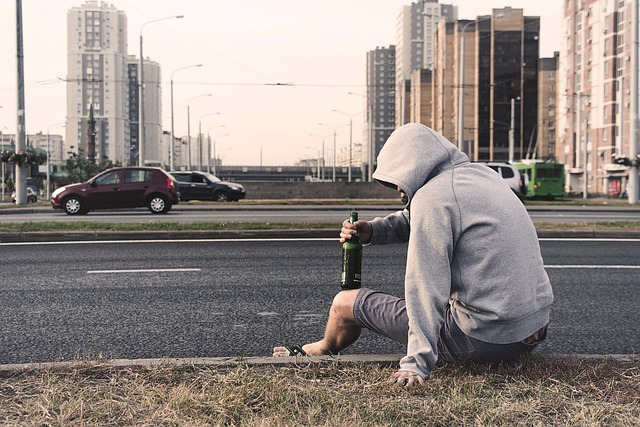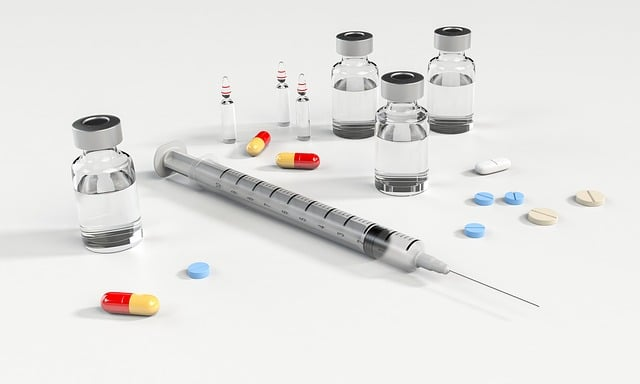Get Answers to Your Questions About Rehab
Are you or a loved one struggling with addiction? Are you seeking drug rehab programs and answers to common questions about the process of recovery? In this alcohol and drug rehab FAQ, we’ll provide an overview of the essential information about addiction treatment, types of treatment programs available with us, payment options, and more.
From detoxification to relapse prevention and beyond, this resource provides a thorough look into the world of drug rehabilitation. With tips and insights from experts in the field, you can approach the difficult path toward sobriety with confidence and clarity.
Whether you are a first-time seeker of professional help or have previously been through the process, this article is sure to provide insight, answer crucial questions, and offer valuable advice when it comes to your arrival at South Shores Recovery!
What Is Drug Rehab?

Drug rehab is a life-saving addiction treatment program designed to help those suffering from drug or alcohol abuse. It’s important to remember that addiction is an illness, not a choice – so professional help is essential for recovery.
When preparing for rehab, it’s crucial to bring the essentials: clothing, toiletries, medications, and anything else you may need. The distance can also be beneficial in treating addiction; staying away from triggers such as people or places associated with the substance can aid in the healing process.
Family and friends are invaluable during this time of recovery – they provide comfort and understanding while offering emotional and practical support throughout the journey.
Drug rehab is a comprehensive treatment program that helps those struggling with addiction achieve long-term abstinence and sobriety. Although there isn’t a quick fix or cure for addiction, with proper guidance and support anyone can begin their path toward recovery.
Who Can Benefit From Alcohol and Drug Rehab?

Everyone can benefit from drug rehab, no matter the severity or type of addiction. Daily conflict in the family dynamic is common when addiction is present, as it is difficult for family members to cope with the behaviors of their loved one and the consequences of their addiction. Pregnant women in particular can benefit from drug rehab programs that are tailored to meet their needs; these programs can provide specialized treatment and resources to ensure the health and safety of both the mother and the baby.
The distance can be used to great effect when it comes to treating addiction. By removing individuals from their potentially triggering and/or otherwise stressful environments, they can focus solely on their addiction issues without outside distractions or temptations. Families can be supportive during this time by providing love, understanding, and patience. They can also help their loved one seek out an appropriate treatment program by researching options such as outpatient treatment, residential treatment centers, luxury rehab centers, and any insurance coverage that may be available.
Ultimately, both you and your family should be prepared to put in the necessary time and effort required to achieve long-term abstinence. Questions about rehab, the ability to cure addiction, and the success rates of drug rehab should be asked before seeking addiction treatment. With the right support and resources, drug rehab can provide individuals and families with the tools they need to create lasting change and overcome their addictions.
What Types Of Addictions Does Drug Rehab Treat?

Drug rehab, also known as addiction treatment, is a way to help those suffering from substance use disorders (SUDs) achieve and maintain sobriety. Dual diagnosis treatment is an effective form of rehab that addresses both the addiction and any underlying mental health conditions, including drug induced mania. This comprehensive approach offers psychotherapy, medication-assisted treatment, and support groups tailored to each individual’s needs. Rehab also provides medical care, supervision for withdrawal symptoms, and cravings management.
When it comes to SUDs, the most important thing is receiving appropriate care from medical professionals. Rehab gives individuals the tools they need to work towards a healthy lifestyle free of substances. Specialized programs are available for certain groups such as those with mild addictions or opioid addiction; luxury centers offer beautiful settings with amenities like monitoring and accountability to prevent relapse.
How Do I Know If I Need Rehab?
When it comes to addiction, recognizing the warning signs of needing rehab is key. Look out for changes in behavior, physical health, and mental health – all of which can be tell-tale indicators of a substance use disorder. If your substance use has become serious enough to affect your daily life, it’s time to consider seeking treatment.
Increased tolerance, withdrawal symptoms, and cravings are all red flags that addiction has taken hold – so if you’re experiencing any of these things, it’s important to reach out for help as soon as possible. Rehab centers offer personalized treatment plans that may include cognitive-behavioral therapy, medication-assisted treatment, and support groups – plus there are luxury options available too!
If you have questions about rehab or addiction treatment in general, speaking with our expert Admissions team can provide invaluable advice and guidance on the recovery process. It won’t be easy, but with the right resources and support system in place, sobriety is achievable long-term. While rehab isn’t a cure for addiction itself, it does equip our clients with the skills needed to stay sober over time.
What Are The Different Types Of Drug Rehab Programs?
Drug rehab programs are designed to provide individuals struggling with addiction the help they need to overcome their substance use disorder. But what exactly is a drug rehab program? And how can it be tailored to meet an individual’s needs?
Drug rehab programs come in many forms, such as inpatient treatment, outpatient treatment, residential treatment and partial hospitalization programs. Each of these offers unique benefits that can be customized for each person’s situation. Outpatient care is usually best for those who have strong support systems or limited time due to work or home responsibilities. Research shows that most people need at least three months of treatment in order to reduce or stop their drug use.
Who Benefits Inpatient Rehab?
For those suffering from severe addictions, multiple substances or coexisting medical and mental health conditions, inpatient rehab centers offer the best solution – providing close supervision and comprehensive patient care. If previous attempts at recovery haven’t been successful enough to maintain sobriety, then considering an inpatient facility may be beneficial.
What is a Personalized Treatment Plan?
An individualized plan should include tailoring settings, interventions, and services according to the patient’s specific needs as well as addressing any medical, psychological, legal, and vocational problems they may have. Treatment professionals will take into account various factors when determining the ideal length of stay for each person, including the severity of addiction type of substance abuse, etc.
When seeking addiction treatment it’s important to ask questions relevant to your own personal needs like the cost, length of stay, and amenities offered plus the type of treatment best suited for you. At South Shores, our programs are tailored to each individual while plans are designed to help them maintain abstinence and achieve long-term recovery.
Does Rehab Cure Addiction?
Recovering from addiction is a lifelong process that involves more than just attending a drug or alcohol rehab center. It requires an individual to address the people and situations that may have contributed to or exacerbated the substance problem. When entering South Shores, individuals can expect to participate in assessments, create an individualized treatment plan, and receive support from our staff members.
What is the Typical Day in Rehab?
The typical day in rehab involves a combination of individual and group therapy sessions, medication management, and aftercare planning. There is often free time allotted, although there may be restrictions on cell phone use, and visitors may be restricted during the early phases of treatment such as detox. Exercise is an important part of the recovery process, providing benefits such as improved mood, reduced stress, and lowered risk of relapse.
Drug or alcohol rehab is a process of overcoming cravings and learning how to live without drug abuse or alcohol abuse. It is important to remember that treatment, even at South Shores, is only one part of the journey toward sobriety and that continued support is necessary for long-term success.
What Kind Of Therapy Does Rehab Offer?
From group and individual substance use therapy to cognitive behavioral therapy and motivational interviewing, these treatments can be tailored to meet each client’s needs as they progress in their recovery journey.
Medication-assisted treatment (MAT) is also an important part of drug rehab, using medications like Suboxone and Vivitrol to reduce cravings and withdrawal symptoms. In addition, behavioral therapies such as cognitive behavioral therapy, motivational interviewing, and 12-step programs are used to address substance use disorders. Relapse prevention education helps individuals recognize high-risk situations so that they can avoid them in the future.
Family therapy plays an integral role in the recovery process too – helping family members build understanding between one another while mending relationships along the way. Other therapeutic interventions offered at rehab centers include non-religious alternatives such as SMART Recovery, Women for Sobriety, or S.O.S., providing support systems for those who need it most during this difficult time in their lives.
Are Medications Used In Rehab?
Medication-assisted treatment, or MAT, is a powerful form of treatment used in many drug rehab programs to help individuals struggling with addiction. This type of treatment combines medication with counseling and other forms of therapy like pieces of a puzzle to effectively treat substance use disorders. Medications used in MAT may vary depending on the individual’s needs, but can include naltrexone, buprenorphine, and methadone – all designed to reduce cravings and stabilize the individual.
Overall, medications are an essential part of helping people overcome their addictions while providing a safe way to manage withdrawal and cravings. With the proper combination of medications and therapies tailored specifically for each person’s needs, clients at South Shores have access to resources that will help them maintain abstinence from drugs or alcohol and achieve lasting sobriety over time.
What is Drug and Alcohol Detox?
Detox is the process of removing toxic substances from the body, such as drugs or alcohol. It is important to note that attempting to detox without professional help may be dangerous due to the potential for severe withdrawal side effects.
During detox, the body works to rid itself of the toxic influences of drugs and alcohol. The experience of detox can vary depending on the type and frequency of substance used and can be unpleasant or even dangerous. Having proper treatment in a medically supervised detox program can help alleviate discomfort and mitigate risks associated with withdrawal.
What is Addiction Aftercare?
When it comes to drug and alcohol addiction recovery, it is important to remember that it is practiced daily and not a finite process. The process of readjusting to life after drug rehab can be difficult, and it is important for individuals in recovery to develop new coping strategies and build a strong support network to help them through the process. If someone relapses from their sobriety, it is important to contact their sponsor or support network, figure out why the relapse happened, and get back on track to sobriety.
In order to support long-term recovery, there are a variety of activities that can be helpful. These activities include counseling/therapy, 12-step/support group meetings, meditation, yoga, exercise, and art. It is also important to sustain a successful life after drug rehab, which involves surrounding oneself with the right social networks that will strengthen sobriety.
What Skills or Tools are Learned in Rehab Centers?
Tools to help maintain sobriety include relapse prevention skills and sober living arrangements may also be included as part of an aftercare plan. After program completion, individuals will receive ongoing counseling and access to alumni programs, as well as assistance with job placement or housing.
Family members can also help by providing emotional support, attending family therapy sessions, and participating in activities with the patient. Treatment teams can help design an aftercare plan by providing guidance and advice on which services should be included. An aftercare plan at South Shores typically includes counseling, support groups, medication management, and other services.
Does Insurance Cover Drug Rehab?
When considering an alcohol or drug rehab program, it is important to have us help check if your insurance plan covers the cost. At South Shores, we accept most major insurance companies. We can also help advise on how to best handle time off from your employer and will help with paperwork as needed to make sure your admission is smooth and worry-free.
The Family and Medical Leave Act (FMLA) is a federal law that guarantees up to 12 weeks of unpaid leave for an employee who needs to take an extended amount of time off due to a serious health condition. This includes substance use disorders and is designed to help individuals seek out treatment without fear of job loss.
We can also help those who work for themselves find rehab for self-employed workers, contractors, and others, that will meet your needs and not derail your business.
What Are The Success Rates Of Alcohol and Drug Rehab?
Drug addiction is a chronic and complex illness, much like other long-term illnesses. Unfortunately, it’s not uncommon for those with substance use disorders to need more than one course of professional treatment before they can achieve lasting sobriety. But research has shown that court-ordered rehab is just as effective as voluntary rehab in helping individuals struggling with addiction find the resources they need to reach recovery.
No matter your circumstances in seeking treatment, South Shores have helped thousands of clients achieve sobriety in our many years in existence, and our client outcomes and success rates are a testament to the efficacy of our programs.
Is Drug Rehab Alone Enough To Stay Sober?
Drug rehabilitation treatment is a critical first step in recovery from addiction, but it is only the beginning of a lifelong process. Completing a drug or alcohol rehabilitation program does not guarantee that an individual will remain sober for the rest of their life. It is important for individuals to understand that addiction is a chronic and progressive illness that requires ongoing care and treatment.
In order to achieve lasting sobriety, individuals must take an active role in their recovery journey by developing a strong support system, engaging in aftercare programs, and developing healthy coping mechanisms. Developing a support system means building relationships with sober family and friends, attending 12-step meetings or other support groups, and seeking out professional help when needed. Aftercare programs provide individuals with the tools they need to maintain sobriety and reduce the chance of relapse. These programs provide a safe environment and support network that promotes healthy behaviors and coping strategies.
What Will I Learn at South Shores?
At our rehab facilities, we help clients develop healthy coping mechanisms to manage stress and triggers that could lead to relapse. Learning relaxation techniques, such as yoga or meditation, is a great way to stay grounded and focused in moments of distress. Additionally, regular physical exercise and staying connected with a sober community can help individuals maintain sobriety.
Overall, drug and alcohol rehabilitation treatment is an essential first step in recovery from addiction and should not be overlooked. However, it is important to understand that recovery is a lifelong process that requires ongoing support, engagement in aftercare programs, and healthy coping strategies. Therefore, individuals must take an active role in their recovery journey in order to achieve and maintain lasting sobriety.
Find Recovery from Drug or Alcohol Addiction Today
No matter your reasons to seek treatment, you have made the right choice in looking at South Shores Recovery as your treatment center. Our inpatient addiction treatment programs are unparalleled in creating a recovery community that welcomes you with open arms.
Whether this is your first or fifteenth rehab treatment stay, South Shores differ from many rehab centers, in that we provide a full spectrum of integrated services. From medical detox to our outpatient rehab programs, we employ evidence-based practices and look to address the underlying causes of drug use and drinking.
From the first moment you step through our doors, to the stories you share with loved ones and family as a success story in our aftercare program, South Shores warmly welcome you to our growing recovery family!


Recent Comments